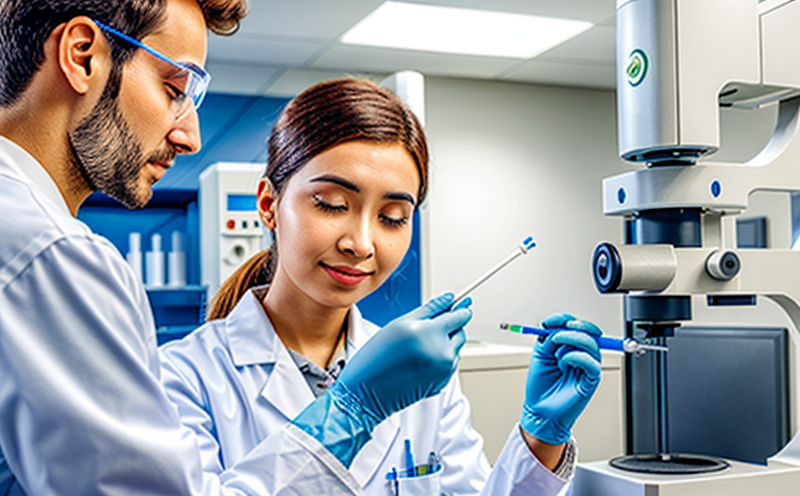Biocompatibility testing for materials used in ophthalmic devices
The Critical Importance of Biocompatibility Testing for Ophthalmic Devices Ensuring Safety and Compliance
As the demand for innovative ophthalmic devices continues to grow, manufacturers must ensure that their materials meet stringent biocompatibility standards to safeguard patient health and prevent costly regulatory issues. Biocompatibility testing is a critical laboratory service that assesses the potential of materials used in ophthalmic devices to cause adverse biological reactions or irritation.
At Eurolab, we understand the significance of biocompatibility testing for ophthalmic devices and offer comprehensive services to help businesses navigate this complex and ever-changing regulatory landscape. In this article, we will delve into the advantages of using biocompatibility testing for materials used in ophthalmic devices, highlighting key benefits, frequently asked questions, and best practices for ensuring compliance.
The Advantages of Biocompatibility Testing for Ophthalmic Devices
Biocompatibility testing is an essential step in the development and production of ophthalmic devices to ensure they are safe for use by patients. Here are some key advantages of incorporating biocompatibility testing into your product development pipeline
Risk Mitigation By conducting biocompatibility testing, you can identify potential risks associated with your materials, reducing the likelihood of adverse reactions or recalls.
Regulatory Compliance Biocompatibility testing ensures that your ophthalmic devices meet international regulatory requirements, including those set by the US FDA, EU MDR, and ISO 10993 standards.
Increased Market Confidence Companies that prioritize biocompatibility testing demonstrate their commitment to patient safety, enhancing market confidence and brand reputation.
Cost Savings Identifying potential issues early on through biocompatibility testing can save costs associated with costly rework or recalls down the line.
Accelerated Time-to-Market By incorporating biocompatibility testing into your development process, you can accelerate product launch timelines, staying ahead of competitors and capitalizing on market opportunities.
Enhanced Quality Assurance Biocompatibility testing is a key component of quality assurance programs, ensuring that ophthalmic devices meet rigorous standards for safety and performance.
Key Benefits of Biocompatibility Testing
Here are some key benefits of biocompatibility testing for materials used in ophthalmic devices
Comprehensive Material Characterization Our state-of-the-art laboratory facilities enable us to conduct a wide range of tests, including cytotoxicity, irritation, and sensitization assessments.
Expert Consultation and Guidance Our team of experienced scientists provides expert consultation and guidance on biocompatibility testing, ensuring that you meet regulatory requirements and best practices.
Flexible Testing Options We offer customized testing packages tailored to your specific needs, allowing you to choose the most relevant tests for your materials.
Accelerated Testing Timelines Our high-capacity laboratory facilities enable us to process samples quickly and efficiently, reducing testing timelines and minimizing delays in product development.
Frequently Asked Questions
Q What is biocompatibility testing?
A Biocompatibility testing assesses the potential of materials used in ophthalmic devices to cause adverse biological reactions or irritation.
Q Why is biocompatibility testing essential for ophthalmic devices?
A Biocompatibility testing ensures that ophthalmic devices meet regulatory requirements and minimize the risk of adverse reactions, recalls, or market withdrawal.
Q Which regulatory standards govern biocompatibility testing for ophthalmic devices?
A International regulatory standards, including US FDA, EU MDR, and ISO 10993, dictate biocompatibility testing requirements for ophthalmic devices.
Q Can I conduct in-house biocompatibility testing for my ophthalmic devices?
A While it is possible to conduct in-house testing, regulatory agencies often require independent third-party validation of results. Partnering with a reputable laboratory like Eurolab ensures that your testing meets stringent standards and regulations.
Best Practices for Biocompatibility Testing
To ensure seamless compliance with biocompatibility testing requirements, follow these best practices
Develop a Comprehensive Testing Strategy Collaborate with our expert scientists to create a customized testing plan tailored to your specific needs.
Select the Appropriate Test Methods Choose relevant tests based on the intended use and application of your ophthalmic device.
Ensure Accurate Sample Handling and Preparation Our laboratory team will work closely with you to ensure accurate sample handling, preparation, and testing.
Monitor Progress and Timelines Regularly review progress updates and timelines to ensure that your biocompatibility testing meets project milestones and deadlines.
Conclusion
Biocompatibility testing is a critical component of ophthalmic device development, ensuring that materials meet stringent regulatory standards for safety and performance. By partnering with Eurolab, you can benefit from our comprehensive laboratory services, expert consultation, and flexible testing options to accelerate your product development pipeline while mitigating risk.
Dont compromise on patient safety or regulatory compliance choose Eurolab for biocompatibility testing of ophthalmic devices and stay ahead in the competitive medical device market.




